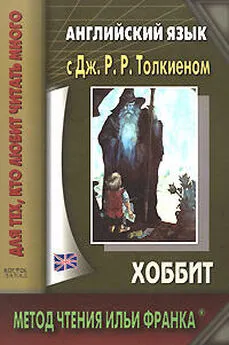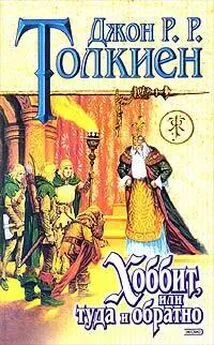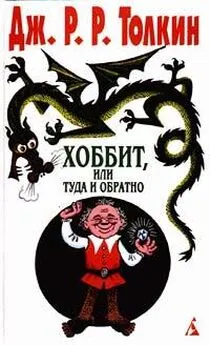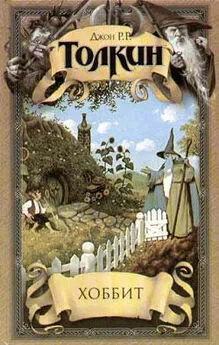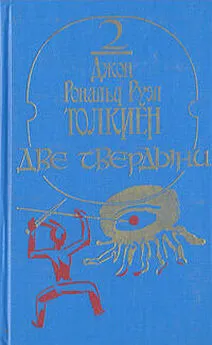Джон Толкиен - Английский язык с Дж. Р. Р. Толкиеном. Хоббит
- Название:Английский язык с Дж. Р. Р. Толкиеном. Хоббит
- Автор:
- Жанр:
- Издательство:АСТ, Восток-Запад
- Год:2008
- Город:Москва
- ISBN:978-5-17-048593-2, 978-5-478-00597-9
- Рейтинг:
- Избранное:Добавить в избранное
-
Отзывы:
-
Ваша оценка:
Джон Толкиен - Английский язык с Дж. Р. Р. Толкиеном. Хоббит краткое содержание
В книге предлагается произведение на английском языке Джона Р. Р. Толкиена «Хоббит», адаптированное (без упрощения текста оригинала) по методу Ильи Франка. Уникальность метода заключается в том, что запоминание слов и выражений происходит за счет их повторяемости, без заучивания и необходимости использовать словарь.
Пособие способствует эффективному освоению языка, может служить дополнением к учебной программе.
Предназначено для студентов, для изучающих английский язык самостоятельно, а также для всех интересующихся английской культурой.
Пособие подготовила Ольга Ламонова.
Английский язык с Дж. Р. Р. Толкиеном. Хоббит - читать онлайн бесплатно полную версию (весь текст целиком)
Интервал:
Закладка:
And then he fell asleep (и затем и он уснул; asleep — спящий; to fall asleep — заснуть ), and there was complete silence for a long time (и долгое время была полная тишина).
All of a sudden (совершенно внезапно) Dwalin opened an eye (Двалин открыл один глаз), and looked round at them (и осмотрел /их/ всех).
“Where is Thorin (где Торин)?” he asked (спросил он). It was a terrible shock (вот ужас-то: «это был ужасный удар»). Of course there were only thirteen of them (конечно же, их было только тринадцать), twelve dwarves and the hobbit (двенадцать гномов и хоббит). Where indeed was Thorin (где же, на самом деле, был Торин)? They wondered (они призадумались) what evil fate had befallen him (какая же злая судьба постигла его; to befall (befell, befallen) — случаться с кем-либо, выпадать на чью-либо долю ), magic (волшебство/колдовство) or dark monsters (или темные чудовища); and shuddered as they lay (и содрогались, пока они лежали) lost in the forest (потерянные в этом лесу). There they dropped off (затем они впали; to drop off — выходить, отходить ко сну ) one by one (один за одним) into uncomfortable sleep (в неуютный сон) full of horrible dreams (полный ужасных сновидений), as evening wore to black night (когда вечер перешел в черную ночь; to wear (wore, worn) — носить; изнашиваться; продвигаться; тянуться, проходить /о времени/, сравните: the day wears towards its close — день близится к концу ); and there we must leave them for the present (и там мы должны оставить их пока; present — настоящее /время/, for the present — пока, на этот раз ), too sick and weary to set guards (слишком больных и уставших, чтобы выставить часовых) or take turns watching (или, сменяясь, нести караул).
path [pɑ: Ɵ] chuckle [ˈtʃʌk (ǝ) l] monster [ˈmɔnstǝ]
But there was nothing, nothing at all; and none of them were fit to go and look for anything, or to search for the lost path. The lost path! No other idea would come into Bilbo’s tired head. He just sat staring in front of him at the endless trees; and after a while they all fell silent again. All except Balin. Long after the others had stopped talking and shut their eyes, he kept on muttering and chuckling to himself.
“Gollum! Well I’m blest! So that’s how he sneaked past me is it? Now I know! Just crept quietly along did you, Mr. Baggins? Buttons all over the doorstep? Good old Bilbo-Bilbo-Bilbo-bo-bo-bo-“
And then he fell asleep, and there was complete silence for a long time.
All of a sudden Dwalin opened an eye, and looked round at them. “Where is Thorin?” he asked. It was a terrible shock. Of course there were only thirteen of them, twelve dwarves and the hobbit. Where indeed was Thorin? They wondered what evil fate had befallen him, magic or dark monsters; and shuddered as they lay lost in the forest. There they dropped off one by one into uncomfortable sleep full of horrible dreams, as evening wore to black night; and there we must leave them for the present, too sick and weary to set guards or take turns watching.
Thorin had been caught much faster (Торина поймали: «был пойман» гораздо быстрее) than they had (чем их). You remember Bilbo falling like a log into sleep (вы помните, как Бильбо заснул как бревно: «впал, как бревно, в сон»), as he stepped into a circle of light (когда он шагнул в круг света)? The next time it had been Thorin (на следующий раз именно Торин был тем) who stepped forward (кто шагнул вперед), and as the lights went out (и когда огни погасли) he fell like a stone enchanted (он упал, как камень, зачарованный). All the noise of the dwarves lost in the night (весь галдеж: «шум» гномов потерялся в ночи), their cries as the spiders caught them (их крики, когда пауки схватили их) and bound them (и связали их), and all the sounds of the battle (и все звуки схватки) next day (на следующий день), had passed over him unheard (прошли мимо него, не услышанные). Then the Wood-elves had come to him (затем к нему подошли Лесные эльфы), and bound him (и связали его), and carried him away (и унесли его). The feasting people were Wood-elves, of course (пирующими людьми были Лесные эльфы, конечно же). These are not wicked folk (они не злобный народ; wicked — злой, нехороший ). If they have a fault (если и есть у них какой недостаток) it is distrust of strangers (так это недоверие к незнакомцам; (dis) trust — (не) доверие ). Though their magic was strong (хотя их магия и была сильна), even in those days they were wary (даже в те дни они были осторожны). They differed from the High Elves of the West (они отличались от Высоких Эльфов с Запада), and were more dangerous (и были более опасными) and less wise (и менее мудрыми).
enchanted [ɪnˈtʃɑ: ntɪd] distrust [dɪsˈtrʌst] stranger [ˈstreɪndʒǝ] dangerous [ˈdeɪndʒǝrǝs]
Thorin had been caught much faster than they had. You remember Bilbo falling like a log into sleep, as he stepped into a circle of light? The next time it had been Thorin who stepped forward, and as the lights went out he fell like a stone enchanted. All the noise of the dwarves lost in the night, their cries as the spiders caught them and bound them, and all the sounds of the battle next day, had passed over him unheard. Then the Wood-elves had come to him, and bound him, and carried him away. The feasting people were Wood-elves, of course. These are not wicked folk. If they have a fault it is distrust of strangers. Though their magic was strong, even in those days they were wary. They differed from the High Elves of the West, and were more dangerous and less wise.
For most of them (так как большинство из них) (together with their scattered relations (вместе с их разбросанными = живущими в разных местах родственниками; to scatter — разбрасывать, рассыпать ) in the hills and mountains (по холмам и горам)) were descended (происходили; to descend — спускаться, сходить, происходить ) from the ancient tribes (от древних племен) that never went to Faerie in the West (которые никогда не ходили в Волшебное Царство на Западе). There the Light-elves (туда эльфы Света) and the Deep-elves (и эльфы Глубин) and the Sea-elves (и эльфы Моря) went and lived for ages (отправились и жили там веками), and grew fairer and wiser (и становились все прекраснее и мудрее) and more learned (и более образованными), and invented their magic (и изобрели свое волшебство) and their cunning craft (и свое хитрое ремесло; cunning — коварный, хитрый, умелый, ловкий ), in the making of beautiful and marvellous things (в изготовлении прекрасных и изумительных предметов), before some came back into the Wide World (до того, как некоторые вернулись в Весь Мир; wide — широкий, обширный ). In the Wide World the Wood-elves (во Всем Мире Лесные эльфы) lingered in the twilight of our Sun and Moon (иногда показывались: «задерживались» в сумерках /света/ нашего Солнца и Луны; to linger — задерживаться, мешкать, не исчезать полностью ) but loved best the stars (но больше всего любили звезды); and they wandered in the great forests (и они бродили в больших лесах) that grew tall in lands (которые стояли высокой /стеной/: «росли высоко» на землях; to grow (grew, grown) tall — вырастать ) that are now lost (которые теперь затеряны). They dwelt most often (они наиболее часто обитали; to dwell (dwelt) — обитать, жить, пребывать ) by the edges of the woods (на краю леса: «на опушках лесов»), from which they could escape at times to hunt (откуда они могли ускользнуть временами, чтобы поохотиться), or to ride (или поскакать верхом) and run over the open lands by moonlight or starlight (или побегать по просторам: «открытым землям» при свете луны или звезд); and after the coming of Men (а после появления Людей) they took ever more and more to the gloaming and the dusk (они все более и более полюбили сумерки и темноту; to take to smth. — пристраститься, проявлять интерес, привыкнуть ). Still elves they were and remain (и все же, они были и остаются эльфами), and that is Good People (а они — Добрый Народ).
relation [rɪˈleɪʃ (ǝ) n] descend [dɪˈsend] ancient [ˈeɪnʃ (ǝ) nt] faerie [ˈfe (ǝ) rɪ] marvellous [ˈmɑ: v (ǝ) lǝs]
For most of them (together with their scattered relations in the hills and mountains) were descended from the ancient tribes that never went to Faerie in the West. There the Light-elves and the Deep-elves and the Sea-elves went and lived for ages, and grew fairer and wiser and more learned, and invented their magic and their cunning craft, in the making of beautiful and marvellous things, before some came back into the Wide World. In the Wide World the Wood-elves lingered in the twilight of our Sun and Moon but loved best the stars; and they wandered in the great forests that grew tall in lands that are now lost. They dwelt most often by the edges of the woods, from which they could escape at times to hunt, or to ride and run over the open lands by moonlight or starlight; and after the coming of Men they took ever more and more to the gloaming and the dusk. Still elves they were and remain, and that is Good People.
In a great cave (в огромной пещере) some miles within the edge of Mirkwood (в нескольких милях от края Мрачного Леса; within — внутри, с внутренней стороны ) on its eastern side (на его восточной стороне) there lived at this time their greatest king (жил-был в это время их величайший король). Before his huge doors of stone (перед /его/ громадными дверями из камня) a river ran (текла река) out of the heights of the forest (с лесистых холмов: «с вершин леса»; height — высота, рост, вершина ) and flowed on and out into the marshes (и продолжала течь дальше и вытекала в болота) at the feet of the high wooded lands (у подножия поросшего лесом нагорья; foot (pl. feet) — нога, ступня; основание; highland — нагорье, высокогорная местность ). This great cave (эта огромная пещера), from which countless smaller ones (от которой бесчисленные пещеры поменьше) opened out on every side (открывались по каждой стороне), wound far underground (извиваясь, вела глубоко под землю; far — далеко, на большом расстоянии ) and had many passages (у нее было много проходов) and wide halls (и обширных залов); but it was lighter (но она была светлее) and more wholesome (и более полезной для здоровья) than any goblin-dwelling (чем любое жилище гоблинов), and neither so deep nor so dangerous (а также не такая глубокая и не такая опасная). In fact the subjects of the king (на самом деле, подданные короля) mostly lived and hunted in the open woods (по большей части жили и охотились в лесах), and had houses or huts (и у них были дома или хижины) on the ground and in the branches (на земле или в ветвях). The beeches were their favourite trees (их любимые деревья это буки: «буки были их любимыми деревьями»). The king’s cave was his palace (пещера короля была его же дворцом), and the strong place of his treasure (а так же надежным местом для его сокровищ; strong — сильный, здоровый, крепкий ), and the fortress of his people against their enemies (и крепостью для его людей для защиты от: «против» врагов).
Читать дальшеИнтервал:
Закладка:
